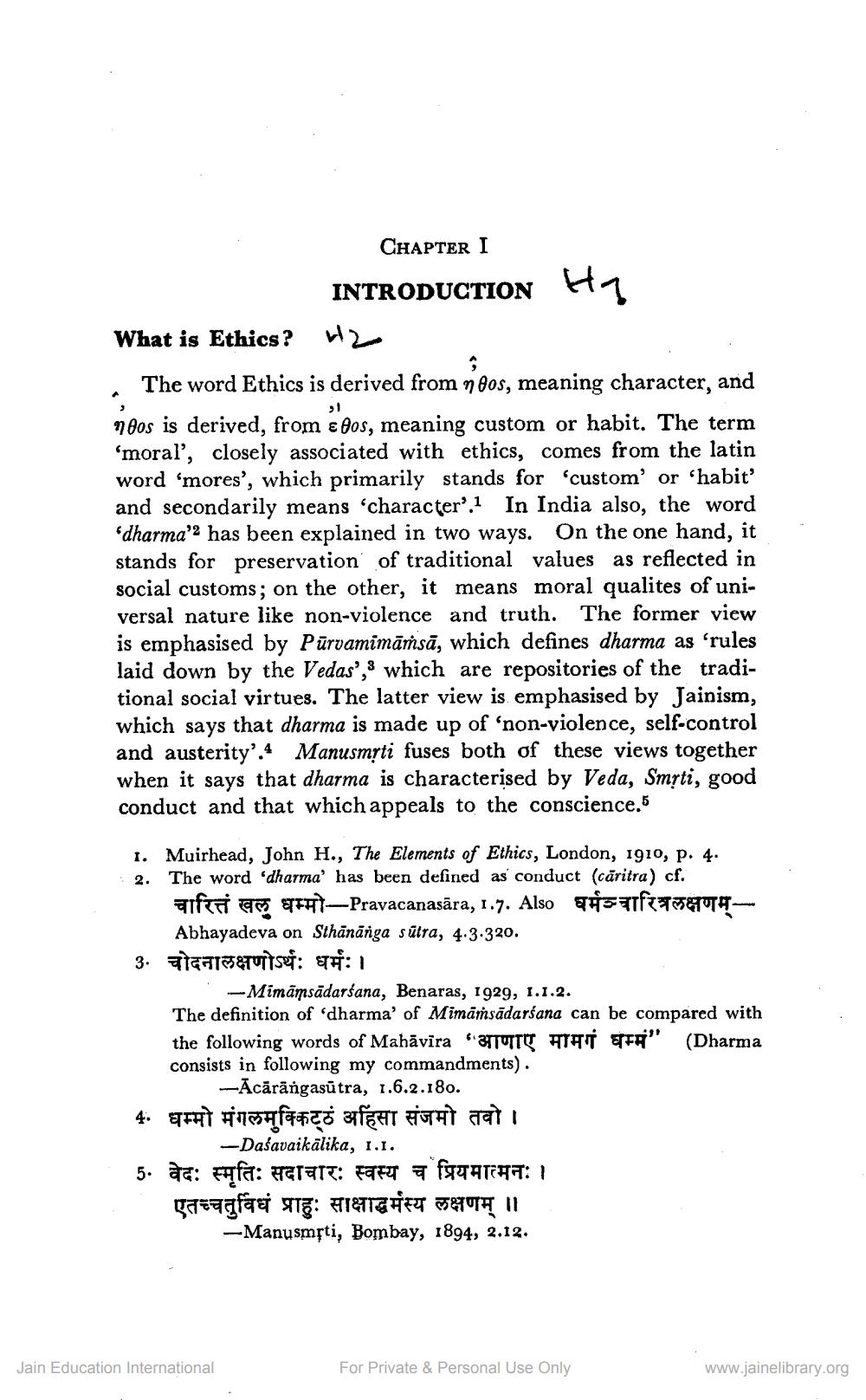________________
CHAPTER I
INTRODUCTION
What is Ethics? 12
The word Ethics is derived from n gos, meaning character, and noos is derived, from e dos, meaning custom or habit. The term 'moral, closely associated with ethics, comes from the latin word 'mores', which primarily stands for 'custom' or 'habit' and secondarily means "character'.1 In India also, the word dharma' has been explained in two ways. On the one hand, it stands for preservation of traditional values as reflected in social customs; on the other, it means moral qualites of universal nature like non-violence and truth. The former view is emphasised by Pūrvamimāṁsā, which defines dharma as 'rules laid down by the Vedas”,3 which are repositories of the traditional social virtues. The latter view is emphasised by Jainism, which says that dharma is made up of 'non-violence, self-control and austerity'.4 Manusmộti fuses both of these views together when it says that dharma is characterised by Veda, Smrti, good conduct and that which appeals to the conscience.5
1. Muirhead, John H., The Elements of Ethics, London, 1910, p. 4. 2. The word 'dharma' has been defined as conduct (căritra) cf.
चारित्तं खलु धम्मो-Pravacanasara, I.7. Also धर्मञ्चारित्रलक्षणम्
Abhayadeva on Sthānānga sútra, 4.3.320. 3. TIGATSETUSET: :1
-Mimāmsādarśana, Benaras, 1929, 1.1.2. The definition of 'dharma' of Mimāṁsādarśana can be compared with the following words of Mahāvīra "BTTTT ATAT EFH" (Dharma consists in following my commandments).
Ācārängasūtra, 1.6.2.180. 4. धम्मो मंगलमुक्किठें अहिंसा संजमो तवो ।
-Dašavaikālika, 1.1. 5. at: Fyfa: HETETT: FIFT a RATTATHA: 1 एतच्चतुर्विधं प्राहुः साक्षाद्धर्मस्य लक्षणम् ।।
-Manusmộti, Bombay, 1894, 2.12.
Jain Education International
For Private & Personal Use Only
www.jainelibrary.org




